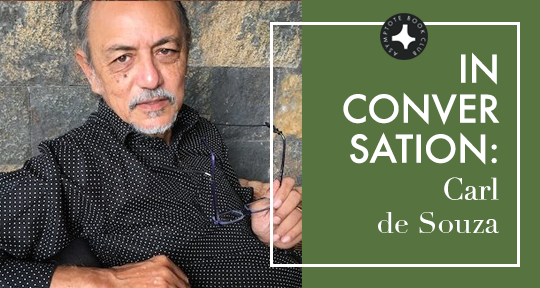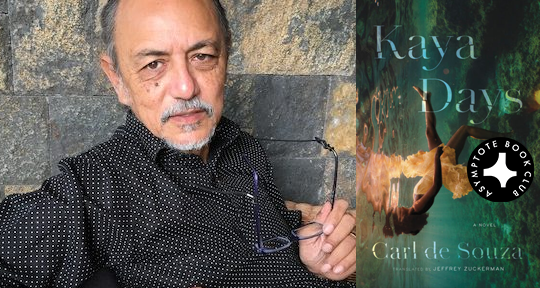In 1989, Gilbert Ahnee, a then-rising figure of Mauritian journalism, ventured into the world of fiction with the release of Exils (Exiles), his first and only novel to date. Published by Éditions du Centre de Recherches Indianocéanique, Exils is an intimate inquiry into self-banishment and belonging, described by Charles Bonn and Xavier Garnier in Littérature francophone: Le roman (Éditions Hatier, 1997) as a largely autobiographical novel that was written upon Ahnee’s return to Mauritius after a period of study in France, illustrating the sense of exile that is felt even by those living in the very heart of the homeland—the novel being an explicit cri d’amour, or cry for love, for the French language.
Thirty-five years later, in 2024, Exils was introduced to the Anglosphere when The White Review, a London literary magazine, included a translated excerpt in an anthology celebrating fiction and nonfiction prose from across the world. The translator, Ariel Saramandi, is a British-Mauritian essayist whose book Portrait of an Island on Fire (forthcoming from Fitzcarraldo Editions this June 2025) was described as ‘a searing account of Mauritius’. Her translation offers a delicate rendering of Ahnee’s prose, sustaining its emotional nuances while opening it up to a new audience.
In this interview, I spoke with Ahnee and Saramandi, both in Mauritius, on the resonances of Exils in today’s world and the evolving legacy of exile in Francophone Mauritian novels.
Alton Melvar M Dapanas (AMMD): The excerpt of Exils (Exiles) published in The White Review’s ‘Writing in Translation’ anthology (in Ariel Saramandi’s translation) bespeaks alienation—cultural, geolinguistic, spiritual—mixed up with indifference, boredom, and frustration. I love that we have the character Jean Louise, in his quarter-life crisis, who embodies how exile gnawingly takes on different shapes:
But I felt that true apathy of not being able to share in their pleasures. I was indifferent to the sea. The sea and its transient vehemence, always the same.
Gilbert, could you take us back to the years leading up to the novel’s publication in 1989? Could you share insights into your creative process?
Gilbert Ahnee (GA): When Mauritius gained independence in 1968, I was 16. I felt, deeply, that my generation would make an unprecedented, but as yet undefined, contribution to our country’s evolution. As a matter of fact, the most groundbreaking changes of the time—political, societal, cultural—were brought about by those who came back from university. My high school classmates were preparing to go abroad, but my family couldn’t afford to sponsor my university education and so I landed a secondary teaching job as an undergraduate physics teacher. In class I taught physics to young boys and adolescents, but in the staff room I benefited from senior colleagues’ advice as regards to literature. I first started by reading nineteenth-century authors: a few English writers, but many more French and Russian novelists such as Zola, Balzac, Stendhal, Dostoevsky, and Tolstoy. That was my first real exposure to the novel. Over the years, I kept on consolidating that interest for novels from around the world, from Truman Capote to William Boyd, Mark Behr to Chimamanda Ngozi Adichie, Mario Vargas Llosa to Gabriel García Márquez, Orhan Pamuk to Pierre Lemaitre. My curiosity for novels is unquenchable. I’m happy that readers noticed, in Exils, allusions to the world of Camus and Proust.
AMMD: Ariel, what inspired you to translate Exils, a French novel published nearly four decades ago, into English? What significance does the novel hold for you as a British-Mauritian writer who grew up in Mauritius?
Ariel Saramandi (AS): This is such a wonderful, intricate question! So perhaps, to start: I’ve used ‘British-Mauritian’ a lot in describing myself abroad, not so much out of a sense of dual nationality—though I am indeed both British and Mauritian—but because all the essays I produced until November 2024 were written under an autocratic government regime. Saying I was ‘British’, even if I never really felt British, was a way for me to signal—hopefully!—that I couldn’t be charged with defamation or imprisoned without the British embassy knowing about it. Asserting my dual nationality in that way felt like a ‘word of warning’ to Mauritian authorities, a ‘technique’ that felt ridiculous—I’ve never been to the British embassy in my life or know anyone who works there. But I’ve also never been troubled, politically, for my work. READ MORE…




